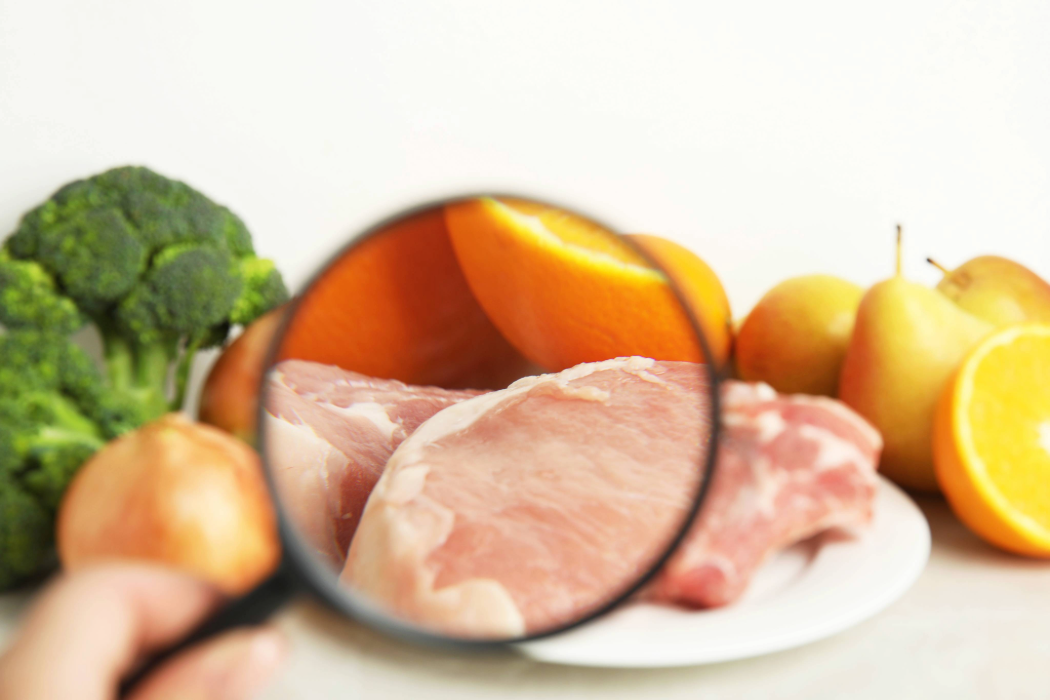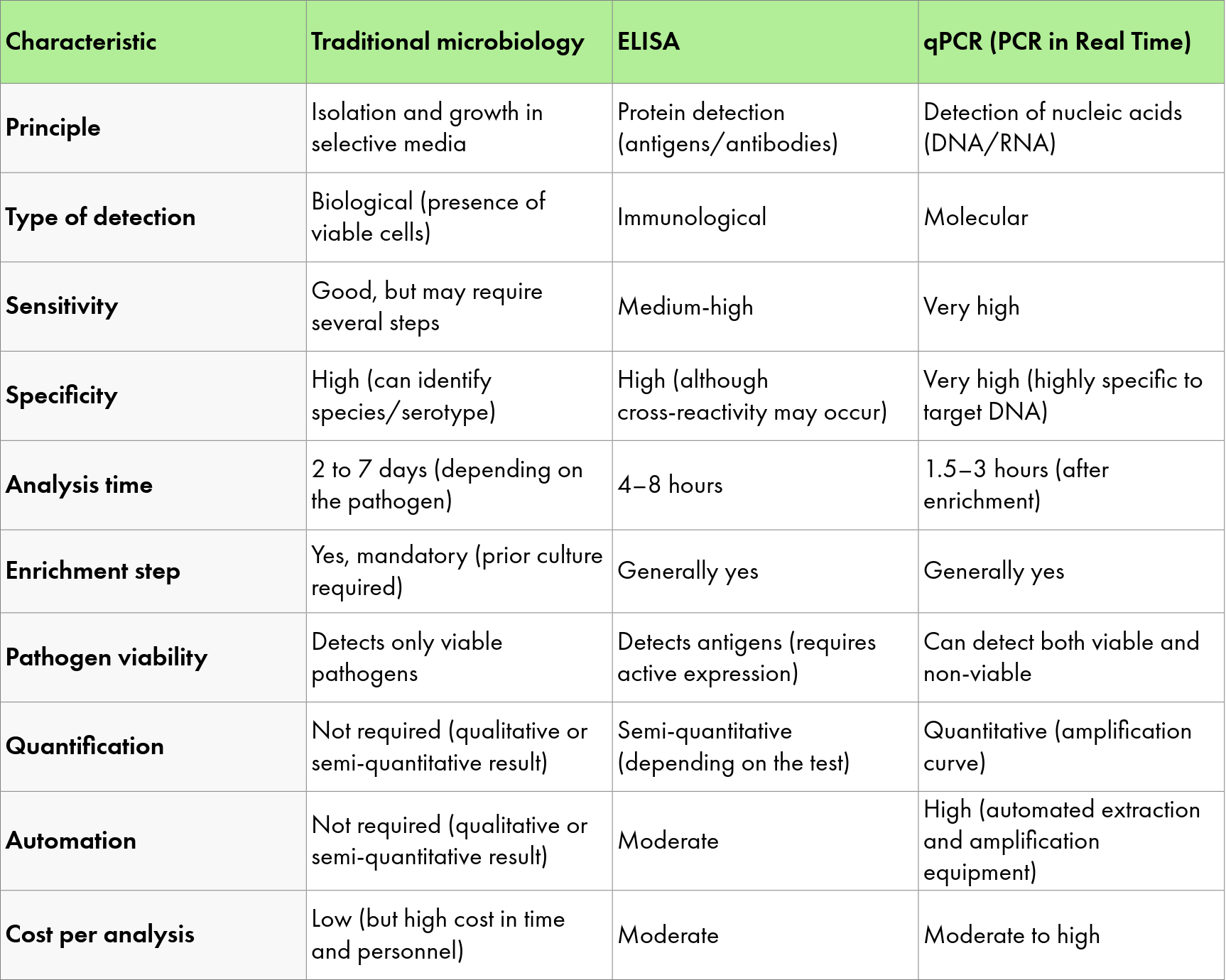Published: 30/05/25 14:23 Categories: Microbiology
PCR: The Technique Revolutionizing Rapid Detection in the Food Industry
Since its invention in 1983, the Polymerase Chain Reaction (PCR) technique has marked a turning point in the field of molecular biology. PCR enables the amplification of small amounts of DNA, producing millions of copies of a specific sequence within hours, making it possible to detect the microorganism of interest.
This is achieved using the enzyme Taq polymerase, which can withstand the high temperatures required for DNA denaturation. The technique has continually evolved, incorporating variants such as real-time PCR (qPCR), which improves accuracy and allows for DNA quantification.

Applications of qPCR
In the food industry, PCR has proven to be an invaluable tool for ensuring product safety and quality. It enables the rapid detection of pathogens, the identification of genetically modified organisms (GMOs), and the verification of ingredient authenticity.
Advantages and Benefits of the Technique
The implementation of this technology has significantly reduced the time needed to obtain reliable results, allowing for quicker responses to contamination outbreaks and strengthening consumer confidence in the supply chain.
The importance of PCR in food safety lies in its ability to prevent health risks and minimize economic losses associated with contaminated products or mislabeling.
Comparison with Other Techniques Used in the Same Industry

How Is It Regulated?
Regulatory bodies have recognized the relevance of PCR and have promoted its use to meet international quality and safety standards. Its high sensitivity and specificity make it one of the most reliable techniques for detecting pathogens such as:
- Salmonella
- Listeria monocytogenes
- Shiga toxin-producing Escherichia coli (STEC)
What Does the Future Hold?
PCR will continue to evolve with the development of more advanced technologies, such as digital PCR (dPCR), which enables even more precise DNA quantification without the need for standard curves. Additionally, the integration of PCR with automation platforms and artificial intelligence will further optimize response times and reduce the possibility of human error.
In conclusion, PCR has become an essential tool in the food safety sector, and its ongoing development will continue to pave the way toward a safer, more efficient, and more reliable industry. Investing in new technologies and training in molecular techniques will be key to maximizing PCR's potential in the years to come.
How Can Our Products Help You?
At Condalab, we offer our Condagene® line, featuring kits for the detection and quantification of microorganisms, specifically designed to optimize your laboratory workflow. We also offer two kits for nucleic acid extraction:
- Condagene® Complex, designed for samples with high inhibitor loads or low genetic material.
- Condagene® Rapid, which allows extraction in just 17 minutes.
If you're interested in learning more about our Condagene® line, don’t hesitate to contact us.

 Probiotics: Which ones are good?
Probiotics: Which ones are good?
 Condalab Says YES to the World’s Leading Lab Trade Fair: Analytica 2026
Condalab Says YES to the World’s Leading Lab Trade Fair: Analytica 2026
 CONDALAB to Exhibit at WHX Labs Dubai 2026
CONDALAB to Exhibit at WHX Labs Dubai 2026
 Food fraud: How do we detect it?
Food fraud: How do we detect it?
 Visit Us at MEDICA 2025 – Discover Our Precise Detection Solutions
Visit Us at MEDICA 2025 – Discover Our Precise Detection Solutions